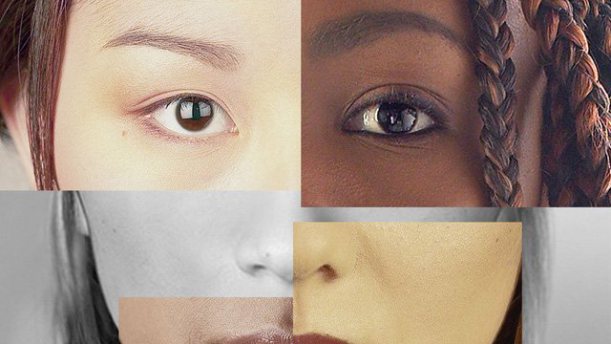By Brant Johnston
China has developed from a struggling economy to a major world power in less than 50 years. Ever since the late Chinese leader Deng Xiaoping began the process of opening and reforming the Chinese economy in 1978, the Chinese people, its power and influence have continued to excel at exponentially fast rates.
This has brought great wealth and modernization to China, but has also created numerous challenges for its future; the rise of China’s power is causing uneasiness in its regional allies, afraid of a change in the balance of power.
As China develops, the cost of its labor market increases, risking a large foundation of its economic rise and China is also facing greater inequality between its cities and rural areas.
All of these challenges, and more, are serious issues Beijing needs to remedy in order to continue its march towards major world power status; however another problem, less talked about, risks China's rise and warrants examination here: 'Racism.'

Prior to 1978, China was very much a closed state. The prospect of traveling to or doing business with China was not very alluring for many foreigners, nor was it easy if they chose to do so. Even after Deng's economic reform, the threats of the Cold War continued to isolate China to certain extent from the western market. China really only became 'open' to the world after the fall of the Soviet Union and the marked end to the Cold War.
This has resulted in less than thirty years of truly open exchanges with people of other cultures and appearances. Furthermore, due to China's rapid rise and importance to the world economy today, a much larger number of foreigners are attempting to travel to and do business with China than ever before.
The combination of a mass influx of foreigners and historical lack of multiculturalism is causing problems with direct, people to people exchanges.
During my time studying in China, I lived in both Beijing and Nanjing, as well as traveling to over a dozen cities. I met a broad spectrum of Chinese people, from city to rural, educated to uneducated, rich to poor and everything in between.
While in some areas it was perhaps more prevalent, it was a common trait to experience some form of 'racism' wherever I went. It is important here to also clarify that by racism, I do not refer to just the negative aspects of racism, but there are also positive aspects as well; something called, 'Positive Racism.'
I am a white, blue eyed, fair haired, English speaking foreigner. Accordingly, I could receive preferential treatment at much of what I wished to do. My entire time in Nanjing, I don't remember having to buy myself a drink or pay entry into a bar; these were provided free.
At large events and attractions, I would be invited to attend and receive not only free entry, but sometimes paid just to attend. In dating, often the fact of my physical characteristics was enough for Chinese girls to pronounce their love for me.
I was lucky, since dark skinned foreigners usually didn’t receive the same benefits. I don't say these things to brag or make myself appear superior, in fact it's important to ponder the negative consequences they bring.
Due to the large population of China and the disproportionate number of males to females, young Chinese men are finding it more challenging to find a good career and partner. These frustrations are then sometimes taken out on foreigners, who they see as stealing 'their' jobs and 'their' women.
I was living in Beijing when a French man and his Chinese heritage wife were killed in Sanlitun. One could argue that this was an isolated incident, but in my experience it was far from it.
Following this event, the 'laowai' (foreigner) networks I was a part of were sharing numerous videos of attacks based on race and a French friend of mine was also physically assaulted outside a nightclub. This ‘positive’ racism, has a nasty side-effect.
Furthermore, the very nature of Chinese people insisting on calling foreigners 'laowai' or 'waiguoren' is racist and perpetuates the mentality that white people are not the same as Chinese people. I am aware neither term are traditionally used in a negative fashion, and the term 'laowai' has now been whole-heartedly embraced by the foreign community, however it acts as a linguistic and mental divide between foreigners and Chinese.
I could never imagine walking down the street in an Australian city pointing and yelling 'Asian!' as a Chinese person walked past, or when a Chinese person enquires about a complicated aspect of Australian culture, laughing and saying the 'Chinese don't understand.'
Yet it happened to me numerous times while I was in China. In addition, foreigners often find there is a 'white' and a 'Chinese' price for most products. This is something I saw commonly and tested during my time in China.
If one Chinese person went into a store, the shopkeeper would quote them a price. If I then followed and asked about the same product, I would be given a higher price. It is commonly expected that foreigners can and should pay more than their native counterparts for the same product.
The purpose of this article is not to berate China, or claim that Australia and other western countries are racist free. It is instead to shine a light on a cultural issue effecting China’s tourism market, trade and foreign investment.
China has already reached the status of a major world power. However, if it wishes to continue to grow and attract tourists and foreign investment, then Beijing needs to take steps to increase the cultural understanding of its people.
China's opening up to the world is still arguably in its infancy and therefore, Chinese people have not yet gotten accustomed to the presence of foreigners in China and this is by no means the fault of the Chinese people.
It also means that racism has not yet had a major effect on international trade. However, as China begins to mature as a major power and as it wishes to attract more foreign trade and investment, the world will look to China to be more tolerable to their differences and partake in fair practices.

Brant Johnston, master student of International Security Scholar at Macquarie Univerisity, Australia
(The opinions expressed here do not necessarily reflect the opinions of Panview or CCTV.com)

Panview offers a new window of understanding the world as well as China through the views, opinions, and analysis of experts. We also welcome outside submissions, so feel free to send in your own editorials to "globalopinion@vip.cntv.cn" for consideration.















